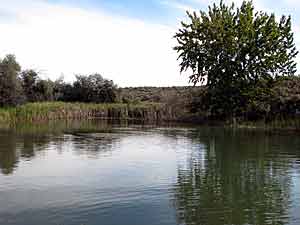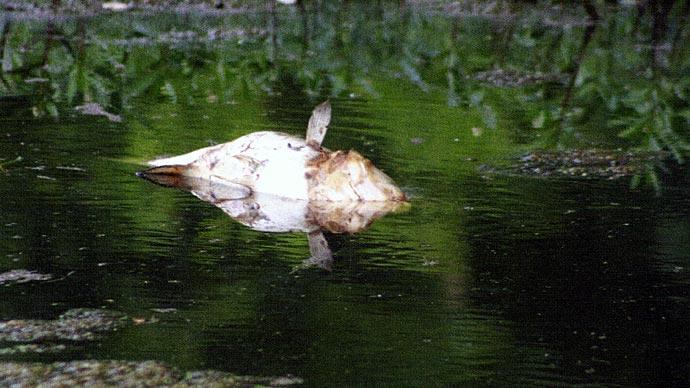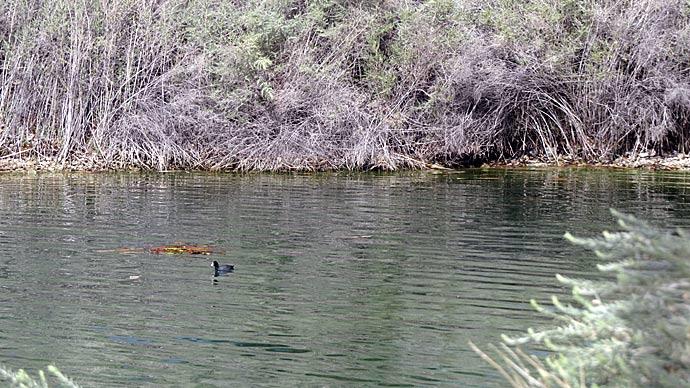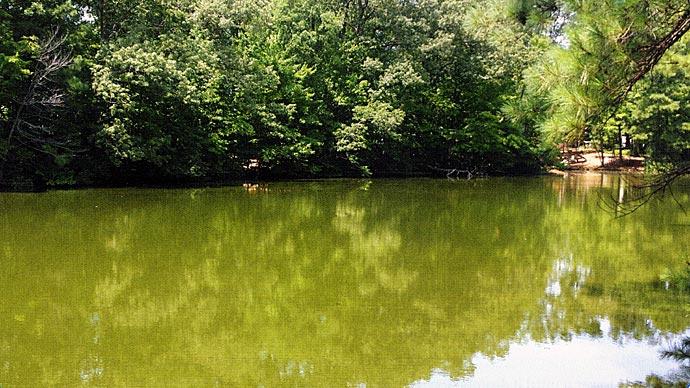
Scientists dub water the "universal solvent." The wet stuff in your pond dissolves rocks, metals, soils, gasses. Water cleanses, purifies. It moves mountains of dirt from the Great Lakes to the Gulf of Mexico, from the Rocky Mountains to the Pacific, even deep past the heart of Texas. Without water in the mighty Mississippi River bringing soils from the Midwest, carving the nation's mid-section, then depositing them in the delta region, Louisiana might not even exist.
Dig through your backyard soils. Look at layers of different soil types several feet underground. Most of those soils are not truly native. They were imported by water.
Even our own bodies are mostly water, which is most dense at 39 degrees (F). Think about that. Steam rises, ice floats. But, at 39 degrees, water is heaviest. A pond with thick winter ice cover has warmer water underneath ice, sitting on pond's bottom.
Water warmer than 39 degrees rises. Cooler than 39 degrees, the less dense water also rises. So, ponds rarely freeze solid. It's nature's way to preserve species, both plants and animals. I marvel at nature sometimes.
Water's affinity for oxygen rises as temperatures drop. That's why trout die when water warms. Not because of temperature, but because warmer water doesn't absorb and hold enough oxygen for trout.
In nature, no one keeps water. We only borrow it. Otherwise, the moisture is always on the move, through evaporation, leaky soils, runoff from rains, animal bladders - all natural events that keep water in a constant rotation. While we have it, we should take care of it.
Why aerate? Since water is the ultimate cleanser, it tends to tackle too much, kinda like musclebound "Mr. Clean" of olden days. Big muscles, strong back, heavy duty. But, even Mr. Clean had to get on his knees and scrub.
When pond water absorbs more than it should, bad things happen.
Aeration gives nature a nudge. Take a real world look in a pond environment. Just last week, our phone rang. At the other end of the line was a customer, heartbroken over huge catfish dying in her small backyard pond. Seems five years ago the quarter acre pond was stocked with 50 fingerling channel catfish.
Most warm days over the next few years, the landowner and her young son faithfully trekked across the yard to feed the fish.
The whiskered fish grew. And grew ... past 10 pounds apiece.
Five years is a long time to feed fish in a small pond. Little exchange of water took place. With a small drainage area, most of her water lost was absorbed into the sky, replenished by ample rains. When evaporation occurs, the only thing that leaves is water.
Everything else stays put.
Five years of fish growth also created five years of fish waste, and organic buildup in the pond. Even though water is the best cleanser on earth, it needs help to finish the job on our time line. Once dissolved, nutrients, metals, minerals can't leave, unless they exit with the flow of water, to be deposited in Louisiana or diluted to extend their trip elsewhere.
But, when water is exposed to air, some of the dissolved stuff can escape, via the atmosphere as gas. When fish eat a couple of pounds of fish food, a pound of that food becomes fish flesh, while the other pound flows into the pond as waste. Some waste is gas, some is liquid, and some solid. Excessive waste buildup is toxic to insects and animals.
Aeration forces movement, which enables water to mix with air, and air to mix with water. This mechanical event works wonders to expedite processing of nature's byproducts. Gasses can leave the water, into the air. Ever smell a musty pond? Escaping gasses. Solids and liquids change form, creating more gasses, on the way to becoming harmless to living creatures.
Ironically, most things which make their way into a pond tend to be heavier than water. They sink. Leaves, grass clippings, duck waste ... all drift downward, settling on bottom.
Left unattended for too many years, all these natural things stay at the bottom, in the water, some dissolved, some waiting to be dissolved, patiently waiting for nature to make its move.
In the catfish pond above, waste byproducts accumulated on the pond bottom faster than the pond could process them. Over the years a shortage of runoff kept waste matter in the pond. Now, too much stuff has collected on the bottom, slowly rising toward the surface. Now, fish are swimming in their own waste. The consequences?
Nature makes a correction. Fish die, population densities drop, water catches up with its housework, then supports fish again.
If the little backyard pond had an aerator over the last few years, water movement would have increased, air would have been added, and the water could have been much more efficient in cleaning itself. All those byproducts, harmful part of the time, could have been rendered harmless over time.
Again, there are consequences. Fifty monster catfish would still be happily vacuuming floating fish food off the pond's surface. The pond's water would be efficiently cleansing itself, and nature would extend its harmony in one landowner's back yard.
Reprinted with permission from Pond Boss Magazine



